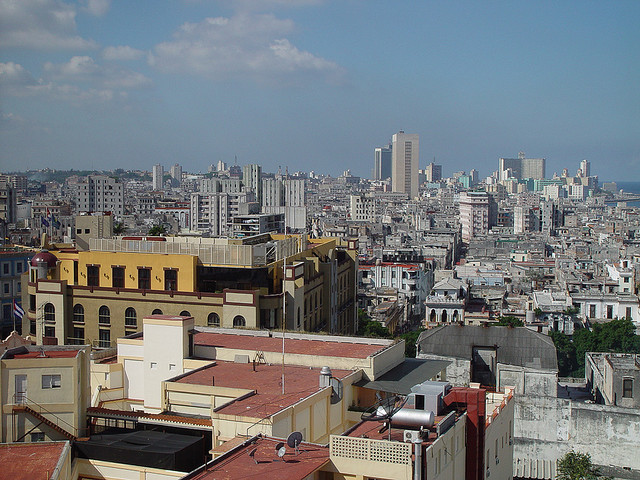
A view to the west over the ocean from Havana’s oceanfront drive. President Obama is easing the trade embargo just as the pope heads for Cuba.
WASHINGTON (Reuters) – The United States on Friday issued regulations easing restrictions on American companies seeking to do business in Cuba and opening up travel in the latest action to weaken the U.S. trade embargo amid warming relations with the Communist country.
Friday’s regulations build on others President Barack Obama announced in January to ease the 53-year-old embargo against Cuba. Their announcement comes just as Pope Francis, who played an instrumental role in the diplomatic opening late last year, prepares to visit Cuba this weekend before his U.S. visit Sept. 22-27.
The rules, which take effect on Monday, Sept. 21, target travel, telecommunications, Internet-based services, business operations and banking, and allow U.S. companies to establish a presence in Cuba. They also eliminate limits on the amount of money people can send back to the Caribbean nation.
“A stronger, more open U.S.-Cuba relationship has the potential to create economic opportunities for both Americans and Cubans alike,” U.S. Treasury Secretary Jacob Lew said in a statement.
READ: Pope Francis will test his diplomacy on US tour
“By further easing these sanctions, the United States is helping to support the Cuban people in their effort to achieve the political and economic freedom necessary to build a democratic, prosperous, and stable Cuba,” he said.
The action comes as Washington and Havana move toward normal relations between the one-time Cold War foes for the first time in more than half a century. Following months of secret meetings hosted by the Vatican, the two neighboring countries restored diplomatic ties and reopened embassies earlier this summer.
Officials said while the changes are aimed at expanding business, they also seek to boost so-called “people-to-people” contact between Americans and Cubans.
Under the rules released by the U.S. Treasury and Commerce Departments, companies can establish subsidiaries or joint ventures as well as open offices, stores and warehouses in Cuba. They also allow for telecommunications and Internet services between the nations.
READ: Pope Francis played key role in restoring US-Cuba ties
Although they do not change who can travel to Cuba, the rules do ease movement of authorized travelers by licensing transportation providers. The regulations also abolish the cap on remittances and allow the travelers to open and maintain bank accounts there.
Previously, people had only been able to send $2,000 per quarter to Cuban nationals or carry $10,000 there, according to the Treasury Department. Cuban nationals were limited to carrying $3,000.
In addition to building on commercial enterprises, the changes “have the potential to stimulate long overdue economic reform across the country,” Commerce Secretary Penny Pritzker said.
The rules address traveler safety by allowing the export of civil aviation equipment to Cuba to ensure aircraft safety, officials said.
The regulations increase educational opportunities by allowing Internet-based courses and further expand humanitarian efforts by allowing disaster relief.





